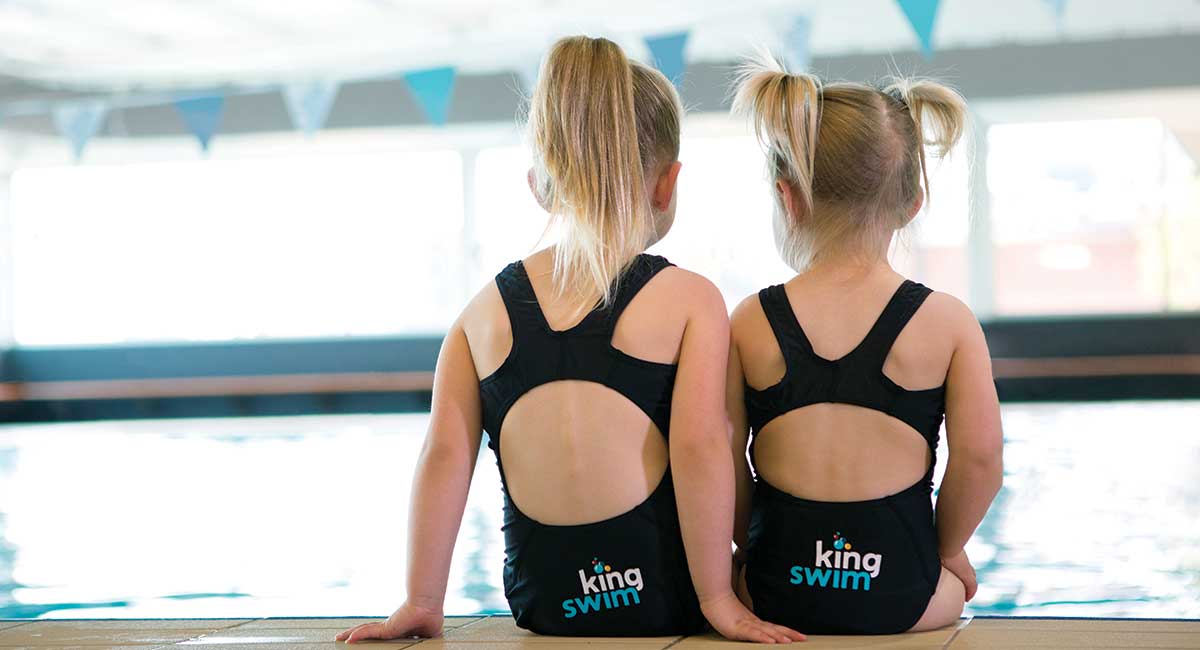If you have a toddler or child who has a fear of water, often known as aquaphobia, you’ll probably be tempted to postpone getting them started with swimming lessons. You may think they will get over their fear of swimming as they grow older and you can try again in a few years’ time. You may have even given up on the idea entirely. Perhaps after a few traumatic attempts to get them into the water. Although this fear won’t go away by itself, it’s important to address it in a caring, understanding and safe way.
A fear of swimming is fairly common amongst infants, toddlers and older children. Due to restrictions this year, there may be a rise in the number of children who are unfamiliar with or afraid of the water as a result of limited access to the water and swimming lessons. This could even be the case with children who have previously been comfortable in the water.
Fortunately, Kingswim Area Manager Natalie Fletcher says there are several fairly effective techniques for helping your child to overcome their fear of water. Once they do get over their fear, there’s no reason why they can’t go on to be an extremely confident and competent swimmer.
“Even better, overcoming their fear of swimming will give them confidence to deal with any other fears they may have. First, it’s important to understand why kids may be afraid of water.”

How do you teach a child who is afraid of water to swim?
Often children who are afraid of swimming have sensitive, intense or inflexible temperaments by nature. It’s important for you to be positive and relaxed at all times; this helps to take the pressure off them in what can be a very stressful situation.
“Validate their feelings and never be agitated or judgmental when dealing with them. Your patience is also key to helping them to overcome their fear of swimming.”
Make trips to the swimming pool as fun as possible and they should slowly start to make positive associations with the activity. Many experts recommend using what is called systematic desensitisation when a child is afraid of water. This involves taking baby steps to get them from a place where they are fearful of swimming to them becoming a confident swimmer.
Talk to your child and map out the journey in tiny steps. Follow these steps very slowly, making sure to reward your child every time they complete one. If they have a complete fear of water, rather than a specific fear of swimming pools, you might want to use baths and paddling pools to start with.
It could be the case that your child is more scared by the idea of swimming than the actual experience. In these cases, it is essential to take some time to observe the surroundings before they get started.
Natalie says, “Encouraging them to play with water toys on the side of the pool is a great way to build comfort. The next step, if they’re feeling comfortable, would be to do some paddling.”
You will see their bravery and confidence start to increase every time they complete a step. Achieving these small goals will help to keep your child motivated and small age-appropriate rewards such as stickers or small toys will help to keep them motivated.
Social anxiety might also be a factor behind their fear of swimming. If this is the case, consider opting for one-on-one lessons as opposed to groups. Going to a smaller pool at a quieter time might also help significantly. Needless to say, most professional swimming instructors will pick up on your child’s fear of swimming immediately and be trained in the best techniques to overcome it.
If you have any doubts at all, speak to them prior to the first lesson. “It’s essential not to make their fear of water a big deal,” says Natalie. “It is quite common and perfectly natural amongst children and can be overcome with patience, reassurance and a combination of techniques.
What causes aquaphobia?
There are several factors that can cause aquaphobia in kids. As with most phobias, it can be caused by one factor alone, or a combination of several factors over time. These could include:
- Parents passing fear of water down unintentionally
- Separation anxiety (from their parents)
- Anxiety caused by the noise, activity and smells of the pool
- The memory of a negative or traumatic experience in water
- Dislike of getting wet
- Dislike of water going in their nose or eyes
- Seeing an upsetting water-related incident in the pool or on TV
When working to overcome your child’s fear, try to establish the cause of their aquaphobia; doing so will make it a lot easier to address.
Kingswim offers a range of swimming lessons for all ages, ranging from babies and toddlers all the way up to adults. Their nationally qualified teachers are extremely experienced and adept at dealing with any fear of water amongst younger learners.
You may also like…
Water safety essentials for Queensland families
The unexpected benefits of learning to swim early
How long should children take swimming lessons?




